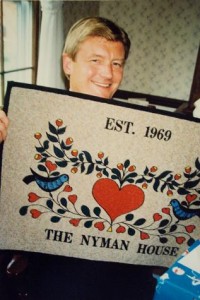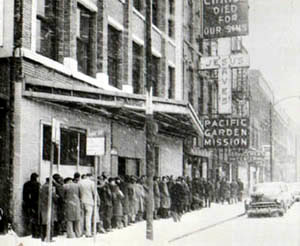After we’d had five children in ten years, I felt stretched to the limit and had gradually morphed into a bad mother. I saw myself like a skipping stone nicking the surface of parenting, in, out, in, out, giving each child only tiny bits of time and attention. If things didn’t change, I knew I’d end up like the stone: sunk.
One day when the kids were 12, 10, 8, 4 and 3, we’d had a compilation of mini-crises (i.e. spilled juice, a cut finger, a broken toy, lots of teasing), and I was frayed at the edges. If I heard the word “mommy” even one more time, I’d thought I’d crack.
Then, as I tried to make dinner, the four year old began peppering me with new questions, and not just any questions. These I had to think about. He not only called me “mommy” with each question but decided to begin and end with it.
- Mommy, why does Papa ride the train, Mommy?
- Mommy, why doesn’t Papa drive the train, Mommy?
- Mommy, when can I get on the train, Mommy?
- Mommy, where should we go on the train, Mommy?
His questions came from a bottomless well of healthy childhood curiosity, and on a non-stressed day, dialoging would have been fun. That day, though, I couldn’t handle it.
By his tenth question (or so), the three year old joined in:
- Mommy, can I have a cookie, Mommy?
- Mommy, can I have a drink, Mommy?
Like a skipping stone on its last landing, I whirled around to face them and said, in an angry voice, “Stop calling me Mommy! And don’t ever call me Mommy again!”
Even as the words zipped through the air, I knew they were idiotic and hurtful. Instantly God reminded me of a conversation 12 years earlier with my firstborn: “C’mon, honey. Say Mommy. Mommy. You can do it! Mom – my.”
And suddenly I felt terrible. These little boys loved me with all-out adoration, everything about me. They wanted to be with me, talk to me, listen to me, hug me… and say my name. I was their mommy, the person above all others.
In relation to parenting, I often think with amazement that I’m a child of God. He and I have a precious Father-daughter relationship, and he never gets tired of hearing me say his name.
Instead he responds, “Come to me. Any time. I’m here for you. Always. I love you.”
And best of all he adds, “Now that you’re my child, you can call me Abba.”
That’s the equivalent of Daddy. He tells me I’m as much his child as Jesus, and since Jesus calls him Abba, I can, too. This privilege makes me weep, because I know I don’t deserve it. Yet he says, “That’s exactly how I see you, Margaret, as my daughter.”
On that difficult day with my children, I dropped to my kitchen floor (just like a sinking stone) and gathered my two little boys into my lap, hoping to undo the damage. But I wonder…
“Because we are his children, God has sent the Spirit of his Son into our hearts, prompting us to call out, ‘Abba, Father’.” (Galatians 4:6)





